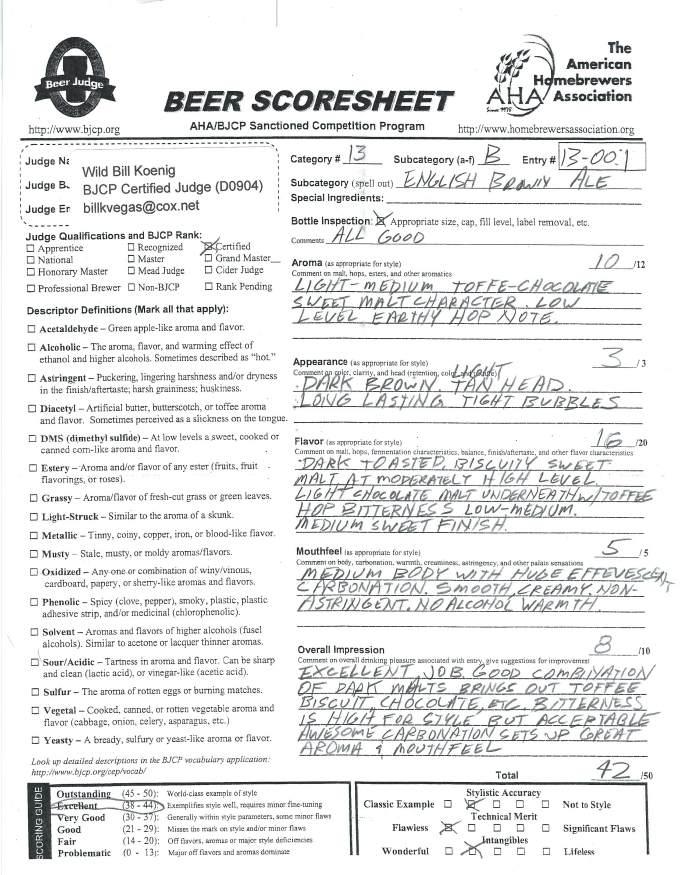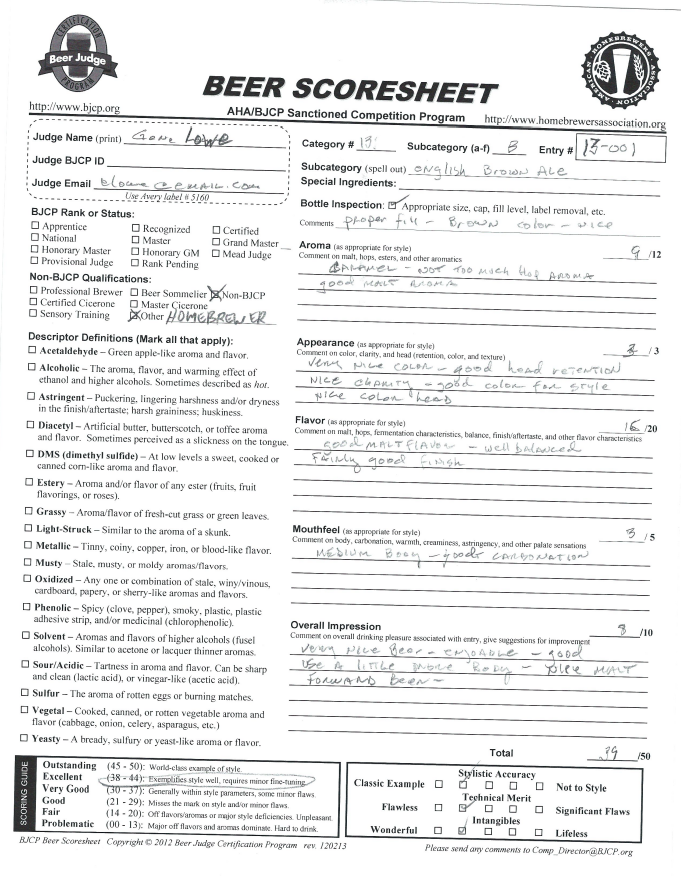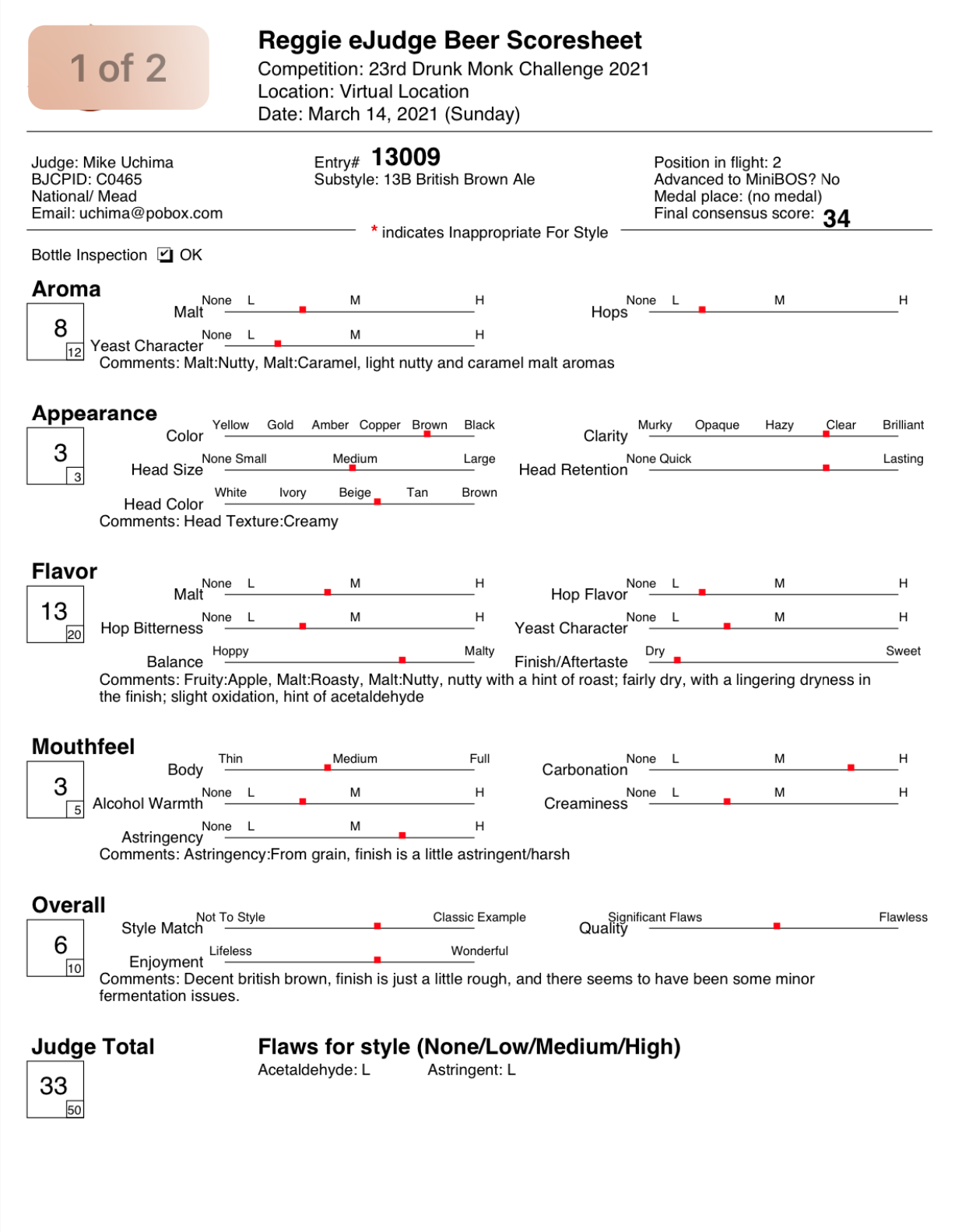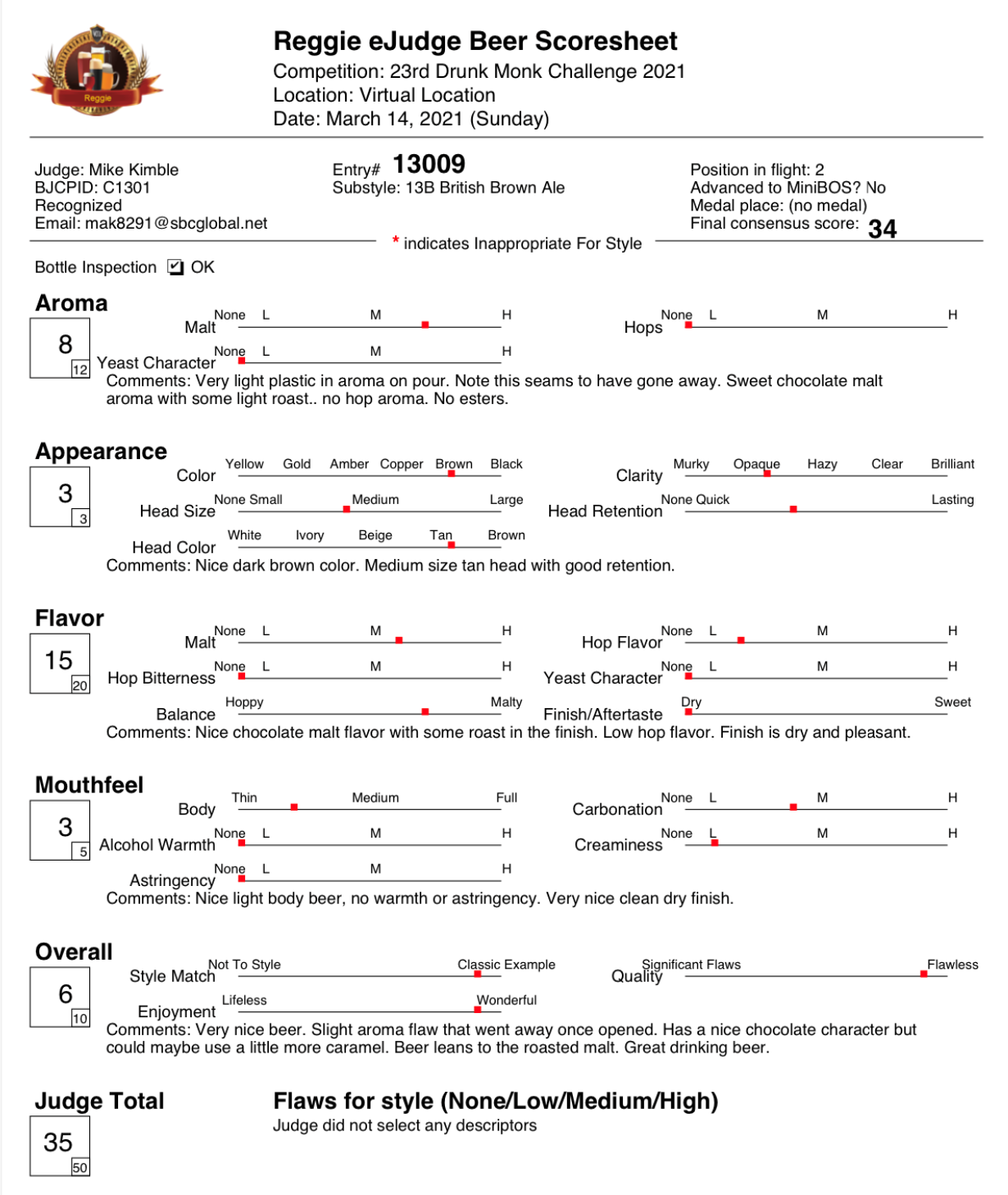If you were to submit a beer to a couple of competitions and your scores were 33, 35, 39 & 42, would you change the beer to try and score higher, DESPITE being a beer that you absolutely love?
The scores above were from a couple of comps that we submitted our brown ale too. Our brown ale is by far my favorite beer that we make and while I was hoping it would take a medal, it did not. How do you guys approach competition feedback?
These are our first competitions so just kind of curious.
Did you enter this into 2 competitions, where 33 and 35 were the scores from one competition and 39 and 42 were the scores from a different competition? 39, 42 are great scores, and they award ribbons based on the average. So you got a 40.5 average out of those 2 scores. Congratulations, that’s a great score, and usually in the range where you get something. Did you not even get a second or a third place ribbon? If so, there must have been a bunch of other great entries in that category.
As others have said, there are quite a few variables. Everything from entry collection and storage, to judge experience, individual judge’s taste and personal preferences, judge assignments and what other categories the judges had before yours, what the judges had for lunch, and the big one is where/what number your entry was judged within the category and what came before yours. Palate fatigue is real.
Far as judge’s comments, they are what they are. I always felt like I was writing caveman-like comments, basic thoughts and words. Some guys are much more eloquent. Each judge is different and has different flavor thresholds, different likes and dislikes. One judge will tell you your beer reeks of DMS and the guy next to him can’t smell it. One judge will say your beer is too hoppy, the guy next to him will say it’s not hoppy enough. They like to say “needs more maltiness.” Even for beers that are supposed to be hoppy.
One thing to pay attention to for competitions is balance. Brew your beer with the right ingredients for style, pay attention to BU:GU ratios as well as calculated bitterness vs perceived bitterness. Some of this stuff I’ve only learned recently after many years of brewing.
Yeah, it’s one of those things - we all want acknowledgement for our efforts and to know we’re on the right track. I was a judge, passed the exam in 2001. Judged for awhile, entered competitions seriously for awhile. Somewhere I have a box with about 35 ribbons in it, a combination of mostly first place ribbons with some second and third places mixed in. I have one second place NHC. It was all just more “stuff” I had to pack up and take with me when I moved. I don’t even have them displayed or anything.
I haven’t entered competitions or judged since about 2006, mostly because I got a job where I have to work every Saturday and competitions are just about always on Saturdays.
I’m brewing for myself these days and what I like. I don’t care if other people are better brewers than I am - I know many are. I’m not out to “beat anybody.” I don’t care if other people like my beer or don’t like my beer. It’s for me - not them.
The ultimate achievement is to win a best of show prize. I’ve never done it. And today, I’m not putting any of my “clean beers” up against all the garbage categories that are out there now that so many are in love with - 17 categories of IPA, including cloudy beers with flour added, “pastry beers” and other such crap. Everything today is a cloudy, hazy, sour, or all 3.
Beer is supposed to be clear. I never thought I’d see the day where people would make a seperate category in their minds for “clear beer” and look down on it with disdain.
The guidelines are almost completely changed from when I was judging - and not for the better as far as I am concerned. Best of show rounds were never fair to begin with.




























![Craft A Brew - Safale S-04 Dry Yeast - Fermentis - English Ale Dry Yeast - For English and American Ales and Hard Apple Ciders - Ingredients for Home Brewing - Beer Making Supplies - [1 Pack]](https://m.media-amazon.com/images/I/41fVGNh6JfL._SL500_.jpg)































